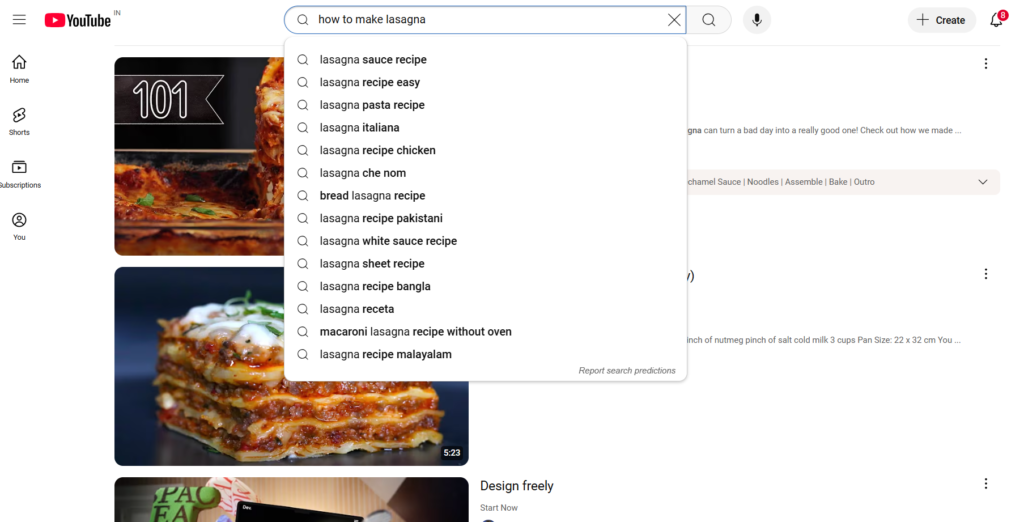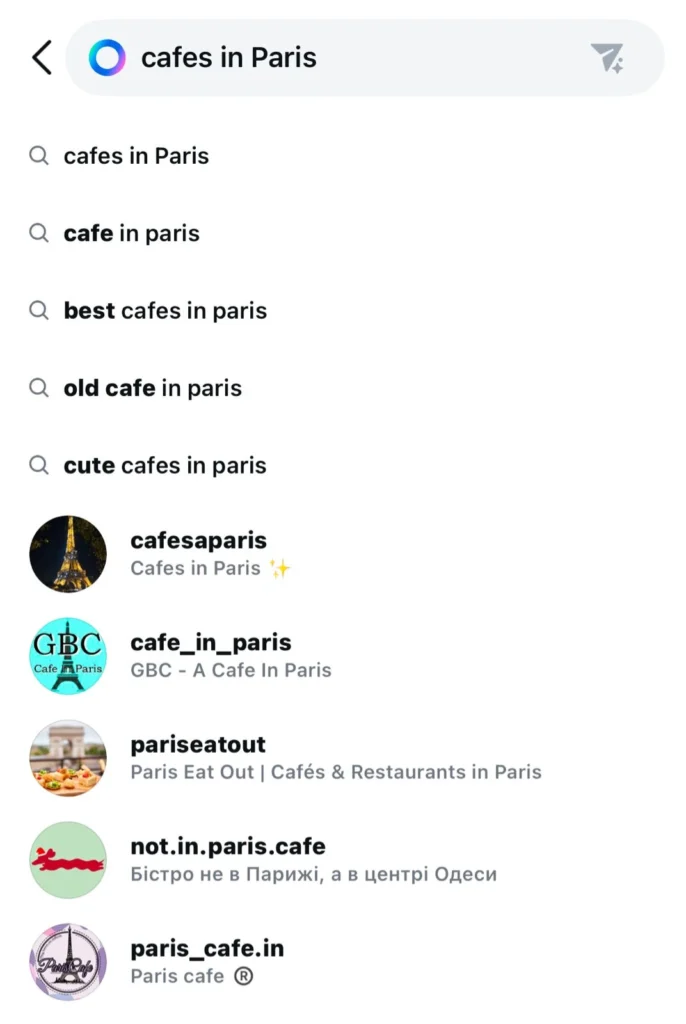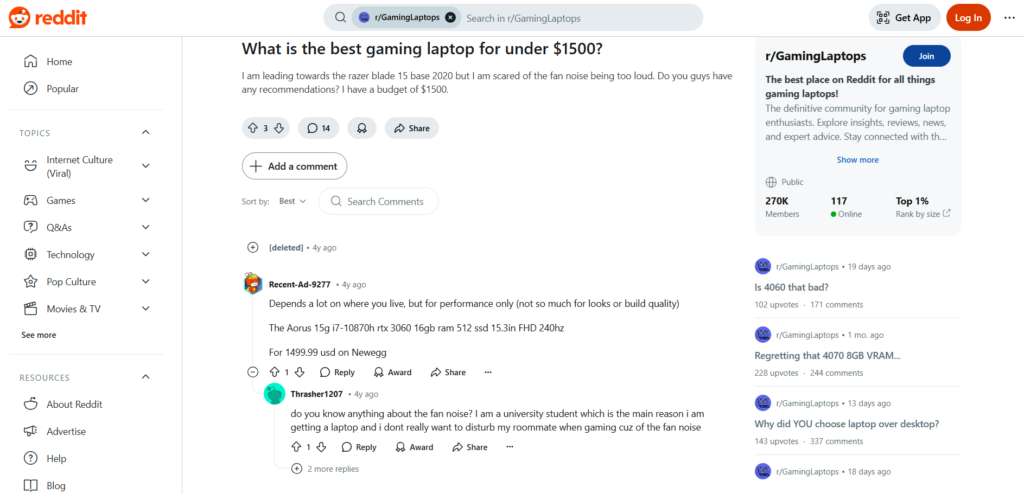With everchanging consumer behavior for the last many years, it has given this digital landscape entirely a new scenario. Platforms must adapt quickly to meet these changes, and marketers must stay agile to maintain relevance. What happened to these lone searchers? Google is no longer the go-to for searching something; social media is taking the lead.
Social Media is Today’s New Search Engine
For decades, people relied on Google to come up with an answer, see products, and get new ideas. Times change. Social media applications such as TikTok, Instagram, or Pinterest are fast becoming a new go-to search engine. It might not be for the best coffee spots to find in a particular town, but certainly for that authentic review regarding the product of your choice.
What Is Social Media Search?
Imagine you are on Instagram, scrolling through reels, and you see a trending skincare product. Instead of going to Google, you search for it directly within the app. You find reviews, influencers sharing their experiences, and even tutorials on how to use it. That’s social media search in action.

Research has revealed that 24% of all consumers and almost 46% of Gen Z users now look to social media first instead of Google for their searches.
Examples of how people use social media platforms as search engines
Here are examples of how people use social media platforms as search engines instead of traditional search engines like Google or Wikipedia:
1. YouTube
Have you noticed how, instead of reading a step-by-step recipe on a blog or Wikipedia, people just head to YouTube? If you want to learn how to make lasagna, you can watch a visual tutorial, see exactly how it’s done, and get a clear idea of the final result. It’s so much easier!

2. Instagram
Or take Instagram, for example. Travelers love searching for “cafes in Paris” or “hidden beaches in Bali” there.

You get to see posts, reels, and stories showcasing the vibe of the place, and the comments section is full of real reviews, tips, and recommendations. It’s like getting an insider look before you even go.
3. Pinterest
For inspiration, Pinterest is unbeatable. Need “wedding decor ideas”? Just browse Pinterest boards with beautiful visuals and trends.

Do you notice the options at the top? There’s an easy-to-use filter for categories like “Easy,” “Open ground,” and “A budget single.” It simplifies the search process and gives you exactly what you need!
4. Reddit
For more niche questions, Reddit is the place to be. If you’re wondering, “What’s the best gaming laptop under $1500?” You’ll find detailed discussions in subreddits like r/buildapc.

Here you’re not just getting answers—you’re interacting with people who know their stuff.
Benefits of Social Media Search
Social media search is not just about convenience; it is changing the way brands connect with audiences. Here’s how:
- Dynamic Content: Social platforms showcase diverse content, from influencers sharing their experiences to brands launching creative campaigns. Take Nike, for example. Their TikTok campaigns blend user-generated content with posts featuring sponsored athletes, creating an authentic and engaging mix.
- Social Proof: People trust recommendations from other users over traditional ads.
- Personalized Searches: Algorithms follow user behaviors and create suggestions of relevant content so that the search becomes even more relevant.
- Visual Engagement: Platforms such as Instagram and Pinterest focus on appealing visuals that immediately catch one’s eye.
- Community Interaction: Features such as Facebook Groups or Instagram Communities bring people together to connect with like-minded individuals and brands in stronger connectivity.
How Can Marketers Leverage Social Media Search?
If you’re a business owner or marketer, you probably find yourself wondering how to ride this wave. Here’s how it’s done.
1. Optimize Your Profiles
Think of your social media profile as your digital storefront. Optimise key areas such as the name of your profile, your bio, and posts with keywords that reflect your business and location. Only then your profile will appear in searches relevant to your industry and target audience, improving discoverability and driving engagement.
2. Create Keyword-Rich Content
Unlike organic SEO, for social media the keywords are applicable. For example, if one is creating small business marketing-related content, this caption can go like: “How to market my small business: 5 tips that work.” Keywords used here are “small business marketing” and “tips,” hence boosting discoverability.
3. Use Hashtags
Hashtags are the bread and butter of social media search. Use relevant and trending hashtags to make your content more discoverable. Platforms like TikTok even show you how frequently a hashtag is used, helping you choose the most impactful ones.
4. Invest in Visual Content
High-quality visual is a need. Whether the content is presented in the video, photo carousel, or infographic style, it immediately catches the reader’s attention. Subtitles as well as text on video also create your content, making it more accessible for people and easier for the algorithms.
5. Engage Communities
Join the right Facebook groups and Reddit threads talking to your probable customers. They share your ideas and build that trust within your communities.
6. Repurpose Content
Save time and expand your reach by repurposing content. A long-form YouTube video can be broken into smaller clips for TikTok, Instagram, or Pinterest. This strategy maximizes your content’s lifespan and visibility.
Optimizing for Social Media Search
To stand out in social searches, follow these steps:
- Research Your Niche
Identify trending content and understand what resonates with your audience. - Choose the Right Content Types
- Videos: Subtitled videos enhance engagement and algorithm recognition.
- Photo Carousels: Use text overlays for better indexing.
- Write Keyword-Rich Captions
Include relevant keywords without overstuffing. Experiment with caption lengths to find what works best. - Use Hashtags Wisely
Research and use 5-8 relevant hashtags to maximize reach.
At ViralOmega, we focus on optimizing your brand’s presence through subtle yet impactful search engine strategies. By leveraging SEO best practices, we ensure your content ranks higher without overwhelming your audience. Through carefully chosen keywords and hashtags, we enhance discoverability and visibility, making your brand effortlessly stand out.
Social media search engines are platforms like Instagram, TikTok, and LinkedIn where users search for relevant content or brands using keywords, hashtags, and profiles, improving discoverability.
Search engines like Google index the web for information, while social media platforms focus on user-generated content and interactions, making them search engines in their own right.
The most useful platform depends on your goals: LinkedIn for professional networking, Instagram for visual branding, TikTok for viral content, and Facebook for community engagement.



